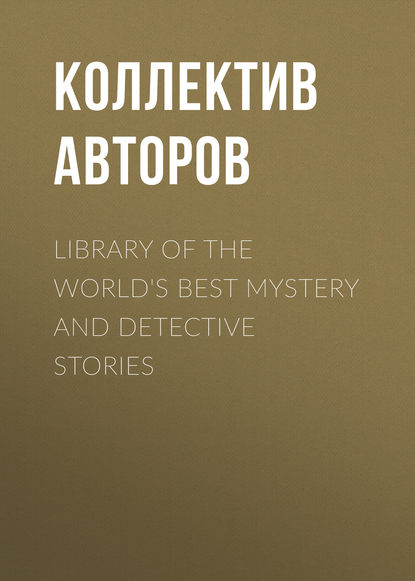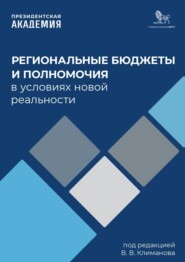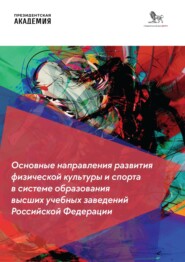По всем вопросам обращайтесь на: info@litportal.ru
(©) 2003-2024.
✖
Library of the World's Best Mystery and Detective Stories
Настройки чтения
Размер шрифта
Высота строк
Поля
"No, I am not the sport of any hallucination, and this is no case of an optical phenomenon. This man is evidently some terrible criminal, and I have altogether failed in my duty in not arresting him myself at once, illegally, even at the risk of my life."
The judge ran downstairs in pursuit of the doctor, but it was too late; he had disappeared. In the afternoon, he called on Madame Frogère, to ask her whether she could tell him anything about the matter. She, however, did not know the negro doctor in the least, and was even able to assure him that he was a fictitious personage, for, as she was well acquainted with the upper classes in Hayti, she knew that the Academy of Medicine at Port-au-Prince had no doctor of that name among its members. As Monsieur de Vargnes persisted, and gave descriptions of the doctor, especially mentioning his extraordinary eyes, Madame Frogère began to laugh, and said:
"You have certainly had to do with a hoaxer, my dear monsieur. The eyes which you have described are certainly those of a white man, and the individual must have been painted."
On thinking it over, Monsieur de Vargnes remembered that the doctor had nothing of the negro about him, but his black skin, his woolly hair and beard, and his way of speaking, which was easily imitated, but nothing of the negro, not even the characteristic, undulating walk. Perhaps, after all, he was only a practical joker, and during the whole day, Monsieur de Vargnes took refuge in that view, which rather wounded his dignity as a man of consequence, but which appeased his scruples as a magistrate.
The next day, he received the promised letter, which was written, as well as addressed, in letters cut out of the newspapers. It was as follows:
"MONSIEUR: Doctor James Ferdinand does not exist, but the man whose eyes you saw does, and you will certainly recognize his eyes. This man has committed two crimes, for which he does not feel any remorse, but, as he is a psychologist, he is afraid of some day yielding to the irresistible temptation of confessing his crimes. You know better than anyone (and that is your most powerful aid), with what imperious force criminals, especially intellectual ones, feel this temptation. That great Poet, Edgar Poe, has written masterpieces on this subject, which express the truth exactly, but he has omitted to mention the last phenomenon, which I will tell you. Yes, I, a criminal, feel a terrible wish for somebody to know of my crimes, and when this requirement is satisfied, my secret has been revealed to a confidant, I shall be tranquil for the future, and be freed from this demon of perversity, which only tempts us once. Well! Now that is accomplished. You shall have my secret; from the day that you recognize me by my eyes, you will try and find out what I am guilty of, and how I was guilty, and you will discover it, being a master of your profession, which, by the by, has procured you the honor of having been chosen by me to bear the weight of this secret, which now is shared by us, and by us two alone. I say, advisedly, by us two alone. You could not, as a matter of fact, prove the reality of this secret to anyone, unless I were to confess it, and I defy you to obtain my public confession, as I have confessed it to you, and without danger to myself."
Three months later, Monsieur de Vargnes met Monsieur X – at an evening party, and at first sight, and without the slightest hesitation, he recognized in him those very pale, very cold, and very clear blue eyes, eyes which it was impossible to forget.
The man himself remained perfectly impassive, so that Monsieur de Vargnes was forced to say to himself:
"Probably I am the sport of an hallucination at this moment, or else there are two pairs of eyes that are perfectly similar in the world. And what eyes! Can it be possible?"
The magistrate instituted inquiries into his life, and he discovered this, which removed all his doubts.
Five years previously, Monsieur X – had been a very poor, but very brilliant medical student, who, although he never took his doctor's degree, had already made himself remarkable by his microbiological researches.
A young and very rich widow had fallen in love with him and married him. She had one child by her first marriage, and in the space of six months, first the child and then the mother died of typhoid fever, and thus Monsieur X – had inherited a large fortune, in due form, and without any possible dispute. Everybody said that he had attended to the two patients with the utmost devotion. Now, were these two deaths the two crimes mentioned in his letter?
But then, Monsieur X – must have poisoned his two victims with the microbes of typhoid fever, which he had skillfully cultivated in them, so as to make the disease incurable, even by the most devoted care and attention. Why not?
"Do you believe it?" I asked Monsieur de Vargnes.
"Absolutely," he replied. "And the most terrible thing about it is, that the villain is right when he defies me to force him to confess his crime publicly, for I see no means of obtaining a confession, none whatever. For a moment, I thought of magnetism, but who could magnetize that man with those pale, cold, bright eyes? With such eyes, he would force the magnetizer to denounce himself as the culprit."
And then he said, with a deep sigh:
"Ah! Formerly there was something good about justice!"
And when he saw my inquiring looks, he added in a firm and perfectly convinced voice:
"Formerly, justice had torture at its command."
"Upon my word," I replied, with all an author's unconscious and simple egotism, "it is quite certain that without the torture, this strange tale will have no conclusion, and that is very unfortunate, as far as regards the story I intended to make out of it."
An Uncomfortable Bed
One autumn I went to stay for the hunting season with some friends in a chateau in Picardy.
My friends were fond of practical joking, as all my friends are. I do not care to know any other sort of people.
When I arrived, they gave me a princely reception, which at once aroused distrust in my breast. We had some capital shooting. They embraced me, they cajoled me, as if they expected to have great fun at my expense.
I said to myself:
"Look out, old ferret! They have something in preparation for you."
During the dinner, the mirth was excessive, far too great, in fact. I thought: "Here are people who take a double share of amusement, and apparently without reason. They must be looking out in their own minds for some good bit of fun. Assuredly I am to be the victim of the joke. Attention!"
During the entire evening, everyone laughed in an exaggerated fashion. I smelled a practical joke in the air, as a dog smells game. But what was it? I was watchful, restless. I did not let a word or a meaning or a gesture escape me. Everyone seemed to me an object of suspicion, and I even looked distrustfully at the faces of the servants.
The hour rang for going to bed, and the whole household came to escort me to my room. Why? They called to me: "Good night." I entered the apartment, shut the door, and remained standing, without moving a single step, holding the wax candle in my hand.
I heard laughter and whispering in the corridor. Without doubt they were spying on me. I cast a glance around the walls, the furniture, the ceiling, the hangings, the floor. I saw nothing to justify suspicion. I heard persons moving about outside my door. I had no doubt they were looking through the keyhole.
An idea came into my head: "My candle may suddenly go out, and leave me in darkness."
Then I went across to the mantelpiece, and lighted all the wax candles that were on it. After that, I cast another glance around me without discovering anything. I advanced with short steps, carefully examining the apartment. Nothing. I inspected every article one after the other. Still nothing. I went over to the window. The shutters, large wooden shutters, were open. I shut them with great care, and then drew the curtains, enormous velvet curtains, and I placed a chair in front of them, so as to have nothing to fear from without.
Then I cautiously sat down. The armchair was solid. I did not venture to get into the bed. However, time was flying; and I ended by coming to the conclusion that I was ridiculous. If they were spying on me, as I supposed, they must, while waiting for the success of the joke they had been preparing for me, have been laughing enormously at my terror. So I made up my mind to go to bed. But the bed was particularly suspicious-looking. I pulled at the curtains. They seemed to be secure. All the same, there was danger. I was going perhaps to receive a cold shower-bath from overhead, or perhaps, the moment I stretched myself out, to find myself sinking under the floor with my mattress. I searched in my memory for all the practical jokes of which I ever had experience. And I did not want to be caught. Ah! certainly not! certainly not! Then I suddenly bethought myself of a precaution which I consider one of extreme efficacy: I caught hold of the side of the mattress gingerly, and very slowly drew it toward me. It came away, followed by the sheet and the rest of the bedclothes. I dragged all these objects into the very middle of the room, facing the entrance door. I made my bed over again as best I could at some distance from the suspected bedstead and the corner which had filled me with such anxiety. Then, I extinguished all the candles, and, groping my way, I slipped under the bedclothes.
For at least another hour, I remained awake, starting at the slightest sound. Everything seemed quiet in the chateau. I fell asleep.
I must have been in a deep sleep for a long time, but all of a sudden, I was awakened with a start by the fall of a heavy body tumbling right on top of my own body, and, at the same time, I received on my face, on my neck, and on my chest a burning liquid which made me utter a howl of pain. And a dreadful noise, as if a sideboard laden with plates and dishes had fallen down, penetrated my ears.
I felt myself suffocating under the weight that was crushing me and preventing me from moving. I stretched out my hand to find out what was the nature of this object. I felt a face, a nose, and whiskers. Then with all my strength I launched out a blow over this face. But I immediately received a hail of cuffings which made me jump straight out of the soaked sheets, and rush in my nightshirt into the corridor, the door of which I found open.
O stupor! it was broad daylight. The noise brought my friends hurrying into the apartment, and we found, sprawling over my improvised bed, the dismayed valet, who, while bringing me my morning cup of tea, had tripped over this obstacle in the middle of the floor, and fallen on his stomach, spilling, in spite of himself, my breakfast over my face.
The precautions I had taken in closing the shutters and going to sleep in the middle of the room had only brought about the interlude I had been striving to avoid.
Ah! how they all laughed that day!
Ghosts
Just at the time when the Concordat was in its most flourishing condition, a young man belonging to a wealthy and highly respected middle-class family went to the office of the head of the police at P – , and begged for his help and advice, which was immediately promised him.
"My father threatens to disinherit me," the young man then began, "although I have never offended against the laws of the State, of morality or of his paternal authority, merely because I do not share his blind reverence for the Catholic Church and her Ministers. On that account he looks upon me, not merely as Latitudinarian, but as a perfect Atheist, and a faithful old manservant of ours, who is much attached to me, and who accidentally saw my father's will, told me in confidence that he had left all his property to the Jesuits. I think this is highly suspicious, and I fear that the priests have been maligning me to my father. Until less than a year ago, we used to live very quietly and happily together, but ever since he has had so much to do with the clergy, our domestic peace and happiness are at an end."
"What you have told me," the official replied, "is as likely as it is regrettable, but I fail to see how I can interfere in the matter. Your father is in full possession of all his mental faculties, and can dispose of all his property exactly as he pleases. I also think that your protest is premature; you must wait until his will can legally take effect, and then you can invoke the aid of justice; I am sorry to say that I can do nothing for you."
"I think you will be able to," the young man replied; "for I believe that a very clever piece of deceit is being carried on here."
"How? Please explain yourself more clearly."
"When I remonstrated with him, yesterday evening, he referred to my dead mother, and at last assured me, in a voice of the deepest conviction, that she had frequently appeared to him, and had threatened him with all the torments of the damned if he did not disinherit his son, who had fallen away from God, and leave all his property to the Church. Now I do not believe in ghosts."
"Neither do I," the police director replied; "but I cannot well do anything on this dangerous ground if I had nothing but superstitions to go upon. You know how the Church rules all our affairs since the Concordat with Rome, and if I investigate this matter, and obtain no results, I am risking my post. It would be very different if you could adduce any proofs for your suspicions. I do not deny that I should like to see the clerical party, which will, I fear, be the ruin of Austria, receive a staggering blow; try, therefore, to get to the bottom of this business, and then we will talk it over again."
About a month passed without the young Latitudinarian being heard of; but then he suddenly came one evening, evidently in a great state of excitement, and told him that he was in a position to expose the priestly deceit which he had mentioned, if the authorities would assist him. The police director asked for further information.
"I have obtained a number of important clews," the young man said. "In the first place, my father confessed to me that my mother did not appear to him in our house, but in the churchyard where she is buried. My mother was consumptive for many years, and a few weeks before her death she went to the village of S – , where she died and was buried. In addition to this, I found out from our footman that my father has already left the house twice, late at night, in company of X – , the Jesuit priest, and that on both occasions he did not return till morning. Each time he was remarkably uneasy and low-spirited after his return, and had three masses said for my dead mother. He also told me just now that he has to leave home this evening on business, but immediately he told me that, our footman saw the Jesuit go out of the house. We may, therefore, assume that he intends this evening to consult the spirit of my dead mother again, and this would be an excellent opportunity for getting on the track of the matter, if you do not object to opposing the most powerful force in the Empire, for the sake of such an insignificant individual as myself."
"Every citizen has an equal right to the protection of the State," the police director replied; "and I think that I have shown often enough that I am not wanting in courage to perform my duty, no matter how serious the consequences may be; but only very young men act without any prospects of success, as they are carried away by their feelings. When you came to me the first time, I was obliged to refuse your request for assistance, but to-day your shares have risen in value. It is now eight o'clock, and I shall expect you in two hours' time here in my office. At present, all you have to do is to hold your tongue; everything else is my affair."

















